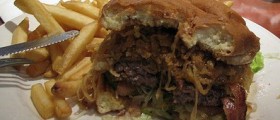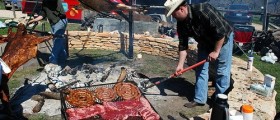
If one eats food contaminated by a certain type of bacteria, known as listeria monocytogenes, one might suffer from the onset of listeriosis. This is the main cause of listeriosis. Listeria itself is found in water and soil, and as a result it can contaminate vegetables and other soil-grown products very easily. Animals carry the bacteria without being affected. The bacteria is present in foods such as uncooked meats and raw milk. Most of the time, listeria can be killed through cooking, but contamination can also occur after cooking. Babies can be born with listeriosis as a result of the mother contracting the condition.
Risks
Healthy people infected with listeria generally recover quite well and do not become seriously ill. However, there are those who are more vulnerable than others when it comes to the condition. For example, those who suffer from immunosuppression, pregnant women, newborn babies, transplant recipients, lymphoma patients, elderly people, and cancer, diabetes or kidney disease sufferers.
Symptoms
Those who develop this condition will display symptoms such as nausea, diarrhea, fever, and muscle aches. Should the infection move to the nervous system, sufferers might experience headache, stiff neck, confusion, loss of balance, and convulsions. Meningitis and encephalitis can occur in those who suffer from problems with their immune systems. Pregnant women normally only suffer mild, flu-like symptoms. However, in some cases, this condition can lead to miscarriage, stillbirth and infection of the child. In newborn children, symptoms like irritability, fever and poor feeding might occur.
Treatment and prevention
Listeria infections can be treated with antibiotics. During pregnancy, antibiotics given to the mother can normally help prevent infection of the child. Babies receive the same treatment as adults.
In order to prevent listeriosis, one should be sure to thoroughly cook food. Always wash vegetables and keep cooked and uncooked meats apart. Consumption of unpasteurized milk or derivative products can be risky in this regard, so avoid using it if possible. Wash all utensils and cooking surfaces before preparation. Also, make sure your hands have been thoroughly washed prior to preparation. Consume perishable foods as soon as possible, and stay away from hot dogs or deli meats that have not been reheated until steaming hot. Cheeses like feta, Brie and Camembert - amongst others - can be carriers of listeria, so check to be sure that these products are made using pasteurized milk. Choose canned or shelf-stable pates and meat spreads instead of refrigerated ones.

















Your thoughts on this
Loading...